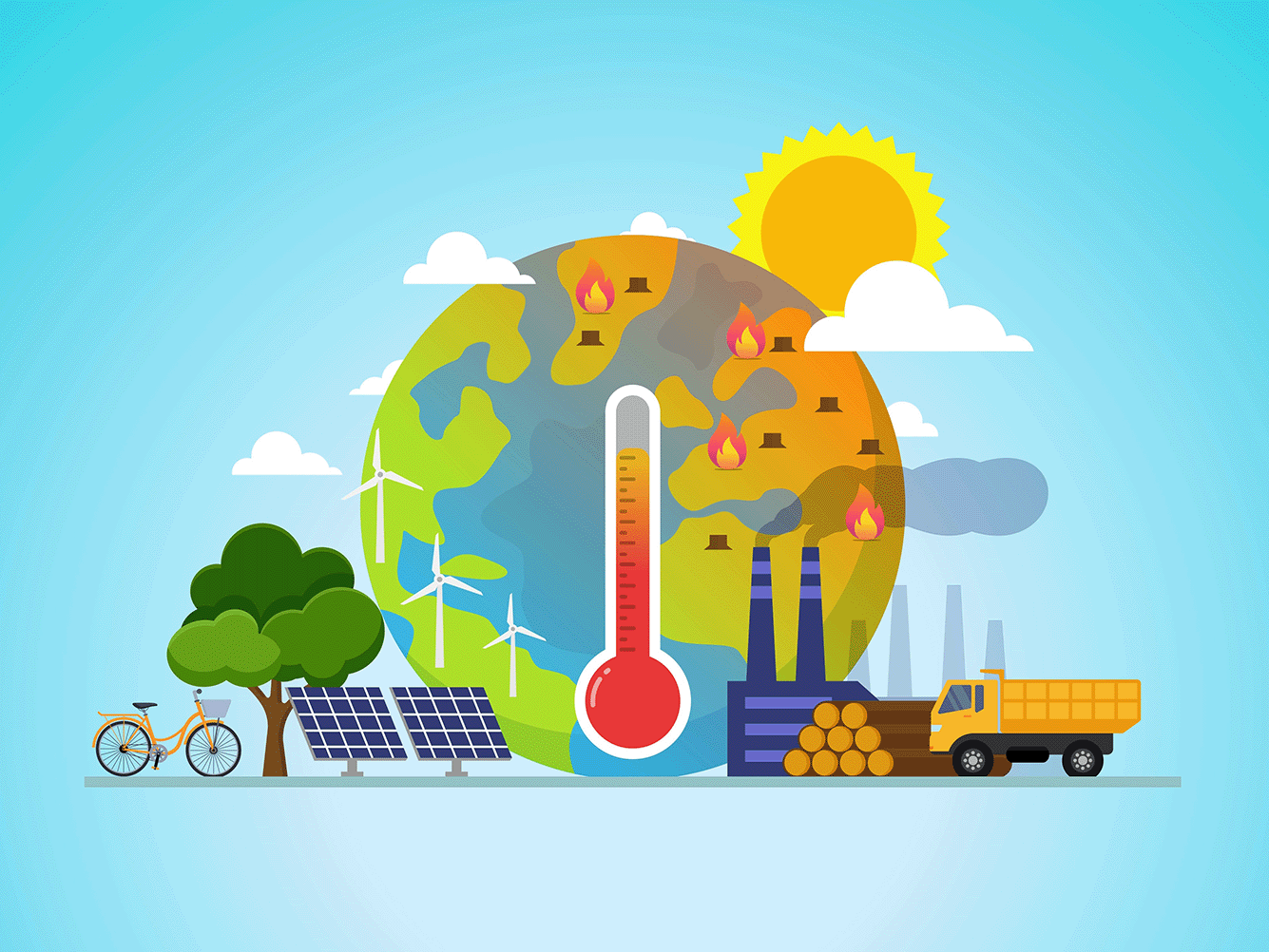CLIMATE CHANGE
Climate change refers to long-term shifts in temperatures and weather patterns. These shifts may be natural, such as through variations in the solar cycle. But since the 1800s, human activities have been the main driver of climate change, primarily due to burning fossil fuels like coal, oil and gas.
Burning fossil fuels generates greenhouse gas emissions that act like a blanket wrapped around the Earth, trapping the sun's heat and raising temperatures.
Examples of greenhouse gas emissions that are causing climate change include carbon dioxide and methane. These come from using gasoline for driving a car or coal for heating a building, for example. Clearing land and forests can also release carbon dioxide. Landfills for garbage are a major source of methane emissions. Energy, industry, transport, buildings, agriculture and land use are among the main emitters.

Climate change refers to long-term shifts in temperatures and weather patterns.
These shifts may be natural, but since the 1800s, human activities have been the main driver of climate change, primarily due to the burning of fossil fuels (like coal, oil, and gas) increasing heat-trapping greenhouse gas levels in the Earth's atmosphere.
Increasing greenhouse gas emissions from human activity act like a blanket wrapped around the earth, trapping the sun's heat and raising temperatures. Examples of greenhouse gas emissions that are causing climate change include carbon dioxide and methane.
Warmer temperatures over time are changing weather patterns and disrupting the usual balance of nature, posing many risks to human beings and all other forms of life on Earth.
NEARLY ALL LAND AREAS ARE SEEING MORE HOT DAYS AND HEAT WAVES; 2021 was one of the hottest years on record. Higher temperatures increase heat-related illnesses and can make it more difficult to work and move around. Wildfires start more easily and spread more rapidly when conditions are hotter.
Temperature rise is only the beginning of the story. Because the Earth is a system, where everything is connected, changes in one area often influence changes in all others. The consequences of climate change now include:
- intense droughts
- water scarcity
- severe fires
- rising sea levels
- flooding
- melting polar ice
- catastrophic storms
- declining biodiversity
PEOPLE ARE EXPERIENCING CLIMATE CHANGE IN DIVERSE WAYS. It affects our health, ability to grow food, housing, safety and work. Some of us are already more vulnerable to climate impacts, such as people living in small island developing states. Conditions like sea-level rise and saltwater intrusion have advanced to the point where whole communities have had to relocate. In the future, the number of "climate refugees" is expected to rise dramatically.
THE ISSUES CAN SEEM DAUNTING. When you confront the devastation that climate change has done and will predictably cause, it can seem too big and too complex to get your hands around, something that hopefully the government or the UN or scientists are working on.